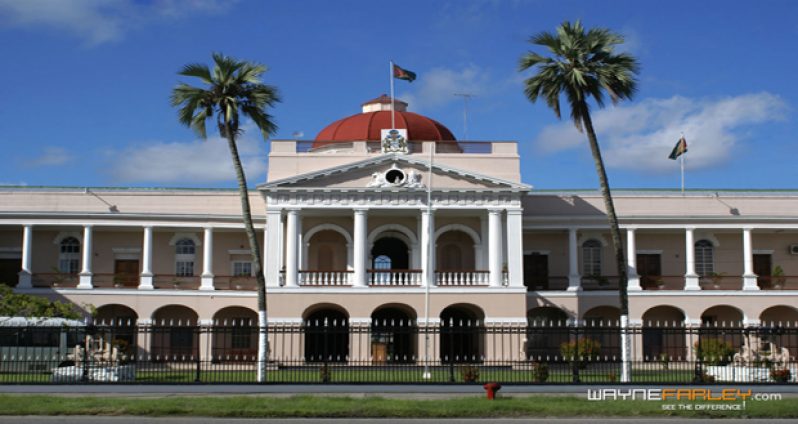WHILE the parliamentary opposition is claiming that decisions arrived at by the House are binding on the Executive, the Executive is adamant that Parliament cannot govern, particularly by way of House motions and resolutions.Head of the Presidential Secretariat, Dr Roger Luncheon made these remarks yesterday while addressing his weekly post-Cabinet press briefing at the Office of the President in Georgetown.
Luncheon, also Secretary to the Cabinet, was speaking in the context of President Donald Ramotar’s recent non-assent to the Local Government Amendment Bill. Bills that have secured parliamentary approval must be assented to by the President before they can become law, Luncheon pointed out.
“And the reasons for the President’s recent non-assent…illustrates why the mere approval of the House cannot and would not suffice for making law; and in essence, is not automatically binding on the Executive.”
Luncheon reminded that this is not an original bill but one that was amended by the opposition to insert the Local Government Commission wherever the minister was mentioned or appeared in the legislation. In essence, Luncheon explained that wherever the minister was mentioned to exercise an authority, the Opposition replaced him with the Local Government Commission.
“What they failed to recognise is that the Commission was a creature of the Constitution whose provisions expressly outlined the powers that the Local Government Commission had. And so this resort of the Opposition to create new powers in the context of their amendment of the Local Government Bill flew in the face of that reality.
“The commission did not, by its constitutional provisions, have those powers that the Opposition sought to confer in the context of their amendment to the Local Government Bill.
And therein essentially lays the basis for the president’s non-assent.
“How could he conceivably assent to a bill conferring powers on a body that it never had? The president properly declined and correspondence has been sent to the Speaker addressing the president’s resolve not to re-submit this bill for parliamentary reconsideration,” said Luncheon.
Meanwhile, a few weeks ago, President Ramotar assented to the three other local government bills, namely the Fiscal Transfers Bill 2012, Municipal and District Councils (Amendment) Bill, and the Local Government Commission Bill.
The President had earlier said that it was not the lack of political will on the part of the People’s Progressive Party/Civic Administration that local government elections were not held in Guyana since 1994. He had expressed hope for the passage of the four bills that were pending in Parliament.
During a special interview at his office, the Head of State had told the Government Information Agency (GINA) that, despite talks of transparency and compromise by the parliamentary Opposition, they had been showing an extraordinary level of inflexibility and were attempting to change many of the positions that were initially agreed to.
“We are the ones who brought back local government elections to Guyana and the fact that we did not have these elections has nothing to do with the lack of will on our part…I know that it is badly needed, because many of the problems we face are due to the fact that we did not have local government elections,” he observed.
Prior to 1994, local government elections were last held in 1970. Subsequent to 1994, the elections could not be conducted because of the coincidence with the general and regional elections of 1997.
Written By Telesha Ramnarine



.jpg)








